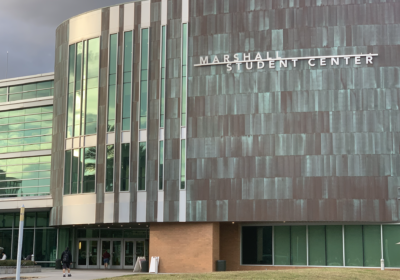Reasons for smoking ban are not sound
A ceremony was held last week to celebrate the new smoking ban at USF Health, which prohibits smoking within a 100-foot radius of all 19 USF Health buildings.
Steven Specter, associate dean for Student Affairs in the College of Medicine, led the group that implemented the ban.
“There is a strong association of cigarette smoking and a number of health problems, and so the desire to create an environment that would be welcoming to our students and promoting health to the patients that come here was a very important aspect of USF Health,” he said.
However, the smoking ban raises serious issues that are overlooked by its confident supporters.
The health effects of smoking seem to be one major reason the ban was implemented. This ban clearly focuses on the effects of first-hand smoking, since there are designated smoking areas away from entrances that easily eliminate undesired second-hand smoke.
While smoking is dangerous to a person’s health, there is no reason to ban this one specific action that damages a healthy lifestyle.
While only 20.6 percent of Americans smoke, the obesity rate in Florida is up to 24.4 percent, according to the Centers for Disease Control (CDC). Obesity can lead to cardiovascular disease, cancer and type 2 diabetes.
Perhaps USF Health should ban fatty foods or drinks filled with sugar that can cause health problems. As long as smokers stay in their designated areas, there is no reason to single out this issue.
Smokers today are fully aware of the negative health effects of smoking. The flood of health information about smoking is immeasurable, but smoking offers a way to relax for some, which can be difficult for others to understand.
Amanda Rohwedder, a graduate student in the College of Medicine, said the ban was “a step in the right direction.” Her comments reflect a bias that those with higher educations may have toward smokers.
The CDC estimates that 41.3 percent of those with only a General Educational Development certificate smoke cigarettes, while only 5.7 percent of those with a graduate degree smoke.
Specter said that USF Health would like to lobby to change the Florida Clean Indoor Air Act and eventually make all of USF smoke-free. Will smokers have to drive off campus every time they need a cigarette break?
An individual should have the personal freedom to choose to smoke. It seems that smokers are constantly chastised and lectured to quit from all directions.
It’s not the responsibility of a public institution to make personal health decisions.
The ban’s supporters are not concerned with what smokers think. They are indifferent to USF Health employees who may have to work all day and may not have time to walk 100 feet away from where they work to smoke a cigarette.
Supporters are ignoring the patients’ visitors, who may be less inclined to visit knowing they can’t even go outside to smoke. The ban’s supporters are only concerned with their own ideological aims.
This ban is unnecessary, and any serious attempt to ban smoking altogether at USF needs to be met with serious resistance and discussion between smokers and non-smokers.
Justin Rivera is a senior majoring in history.






